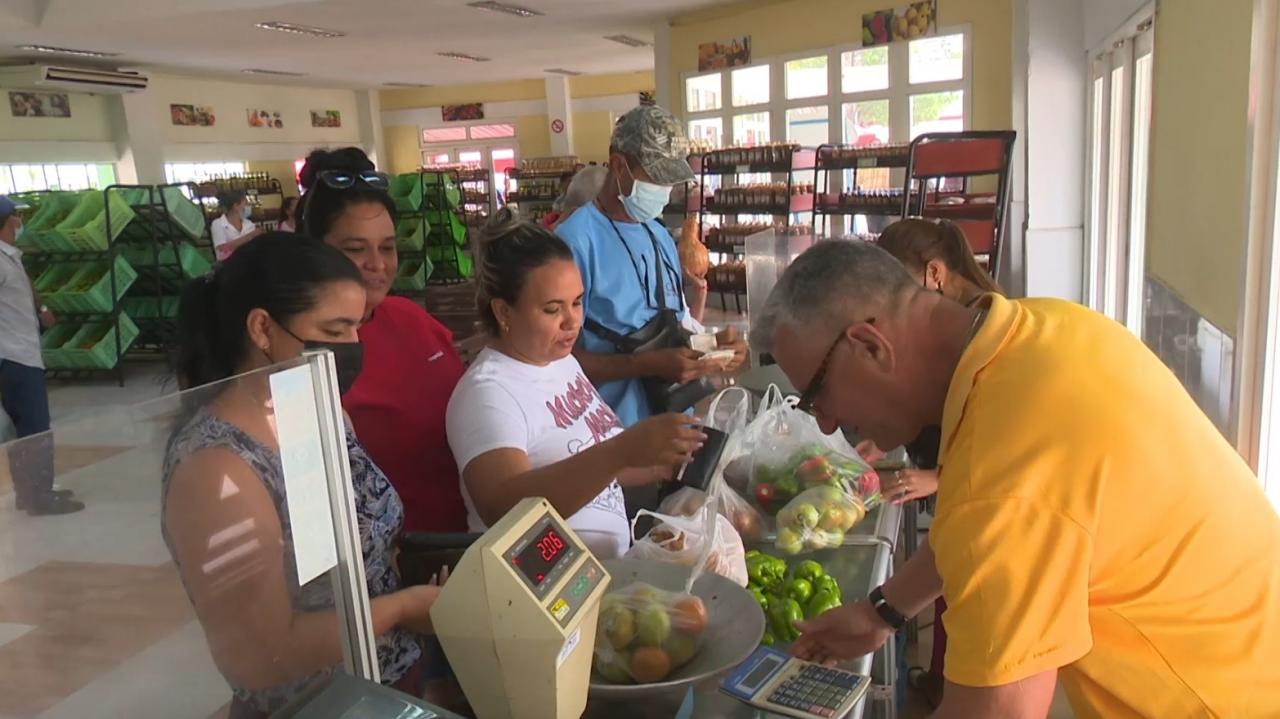While in Las Tunas the Cuban authorities have imposed price caps on some producers' goods in agricultural markets, in Artemisa 18,000 hectares of staple crops have ceased to be cultivated in the midst of inflation and shortages that have a direct impact on Cubans’ wallets and diets.
According to a report by the local official publication Periódico26, the Price Negotiation Committees and the Council of the Municipal Administration of Las Tunas decided to cap the prices of some agricultural products and to ensure that merchants comply with the new limits.
In a measure that affects producers, but which, according to the authorities, seeks to "protect the purchasing power of the population," a pound of bananas was capped at 12CUP, the current price of 7CUP for a pound of "donkey banana" was maintained, with 8CUP being the figure for sweet potatoes, 7CUP for cassava, 6CUP for pumpkin, 10CUP for lettuce, 30CUP for tomatoes and 20CUP for cabbage.
At a previous meeting held with the main "economic actors" linked to this activity in the territory, Manuel Pérez Gallego, a member of the Central Committee and first secretary of the Communist Party of Cuba in the province, said that it was necessary to "promote an enhanced commercialization process for agricultural products, making them profitable for those who produce without being abusive for consumers."
Pérez Gallego was categorical in stating that "disorganization in commercial activity will not be allowed," warning that the inspection bodies would be responsible for ensuring compliance with the prices approved.
No food and no cultivation
Meanwhile, in the midst of the food shortage suffered by the Cuban population, 18,000 hectares of primary crops —such as plantain, cassava, sweet potato and malanga— were wasted in the province of Artemisa, according to the newspaper El Artemiseño.
The information was made public after an exchange between Vice President Salvador Valdés Mesa and authorities in the territory, in which the official stated that it was necessary to "increase planting areas and organize agricultural commercialization."
"If there is something we have in Artemisa, it's land, and the work experience of our farmers," Mesa said, although he called the goals of adding 100,000 cultivable hectares in the next cold season, and the same number in the spring, a real challenge.
Valdés Mesa called for the "optimal use of agricultural machinery, the use of bioproducts, which should be consolidated in the wake of the completion of several plants in the country, in addition to the planting of short-cycle crops on idle land of the AZCUBA sugar group, Los Naranjos, tobacco companies or any other owner".
Valdés Mesa said that it is imperative to decrease the crop cycles and to follow through on the commitment of 12 pounds per capita with Havana.
However, the Party's first secretary in Artemisa, Gladys Martínez Verdecia, complained about the marabou-infested lands, and described as fundamental a "clearing and construction brigade with specialized equipment to help clear the overgrown lands in the south of the territory."
"Producing our own grains and cereals, so that we do not have to import them, and so that the municipalities can become self-sufficient, are the best options," Valdés Mesa said, according to the local media.
The meeting also discussed a program for the delivery of five kilograms of protein, for which the plans include "expanding aquaculture, the breeding of black pigs, as well as the completion of the livestock farms so that their different varieties can receive veterinary certification."
Cuban farmers and producers complain of numerous obstacles to their work, and that they receive little help to grow their crops.
This week the official press has published reports of losses due to a lack of supplies, fuel, and the rotting of basic products that are subsidized by the State, such as potatoes.
Recently, Leonel Capote, from Güira de Melena, predicted on Twitter: "In a few months, agricultural products will be scarcer. The cold season crops are finished. It wasn't possible to prepare the lands to sow summer products due to the lack of fuel. We lost that precious time when it did not rain."
"Now the rains have already started, the grass is growing, and the land hasn?t been plowed. But, even if you get fuel, nothing can be done. It's a waste of time and the days are going by. What cannot be sown today, will be missing in the coming months," he stressed.
"That's why with agriculture you have to strike when the iron is hot, plowing, preparing land and sowing at the right times. Later, it's too late. That will be food missing from tables," he finished.
Capote himself is an example of the fact that it is not only the lack of resources that is affecting agricultural production in a country whose authorities are demanding more crops so the country can stop importing food.
In April he complained about the loss of his pumpkin harvest, just two months after the government claimed that food was being wasted in Cuba due to "food-related ignorance."
